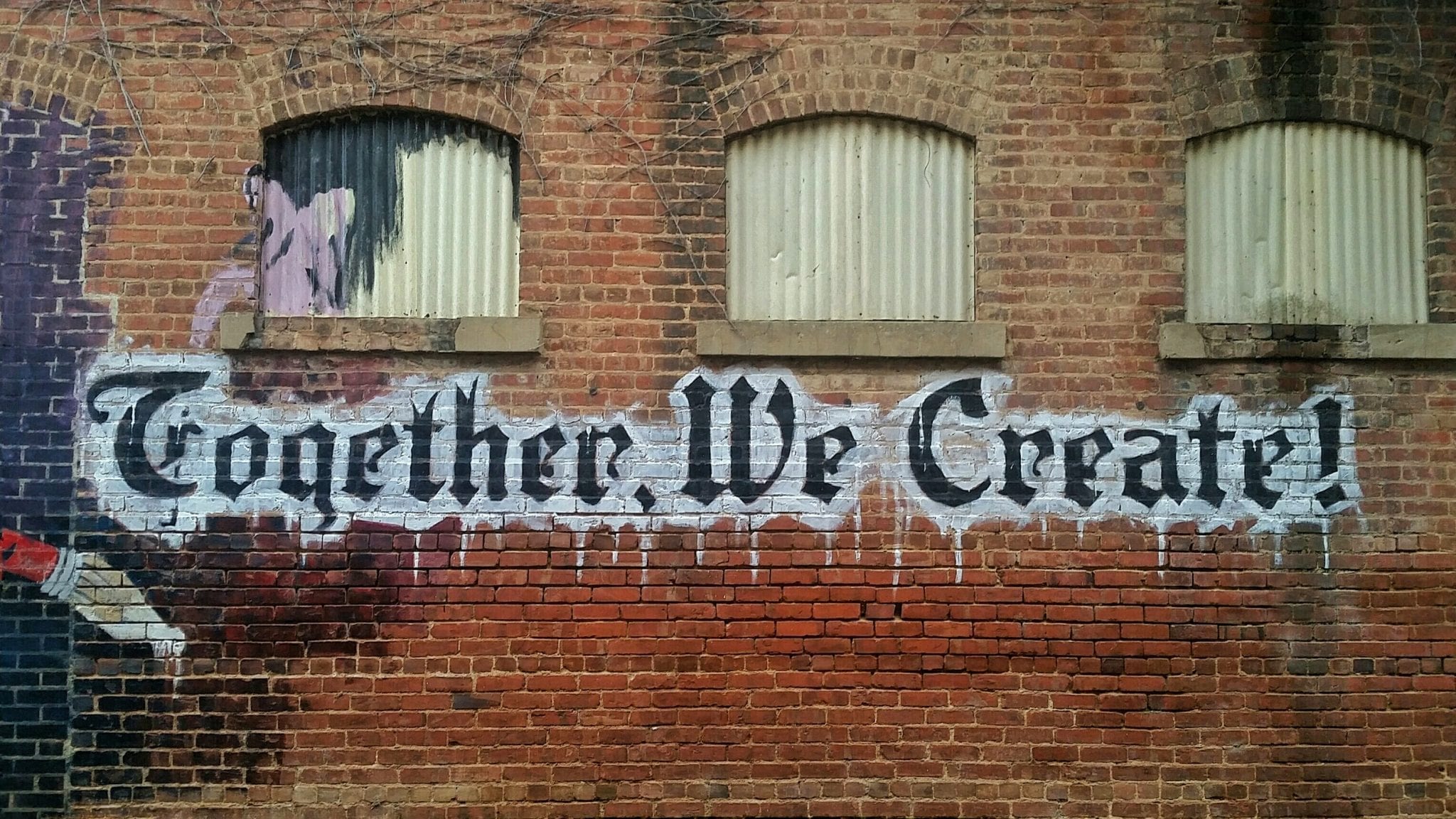Experiments in community investment in real estate, worker cooperatives, decentralized energy generation, and more, are bearing profitable, equitable fruit.
It can be difficult to hold on to hope when it seems like every day brings a new travesty or tragedy. Senseless violence and political regression, with the constant background drone of economic stagnation and ecological collapse, makes it that much harder to get up in the morning and trudge through our working (or worse, unemployed) lives, especially when it feels like we’re only treading water instead of making a positive difference in the world around us. There’s got to be a change coming, right? Happily, part of that change is taking root in fertile soil around the world. It’s made possible by people just like you and me, with the vision, desire, and, most importantly, the community investment needed to begin transforming the dominant, predatory system into something quite different.
As the buckle of the Rust Belt, Detroit was one of the biggest and best industrial cities to rise in the Automobile Age, and the first to fall when that particular model proved unsustainable. That’s what makes it so interesting to watch as a laboratory of ideas for how to live in a post-collapse environment. Detroit has not disappointed, becoming a hotbed of urban agriculture and hosting a robust informal economy, but what happens when residents lack the resources to undertake such ventures on their own? In a town where making $52,498 per year is enough to be considered rich, a new startup aims to spark community investment by allowing any Michigan resident with $1000 to spare to buy a share – and a vote – in Detroit’s future. When neighbors band together to buy, renovate, and share in the proceeds from selling or renting once-neglected homes, everyone wins.

The bottom-up distributed model of Detroit’s re-emerging prosperity is one that many can emulate. The late 20th century left us with top-heavy, monopolistic energy infrastructure that leaves everyday people at the mercy of large corporations. That situation is changing. While the first step should always be to reduce the amount of energy we consume, there’s potential for powering what we decide is truly important with smaller scale, localized generation. Residents of Ontario (Canada), Colorado (USA), and New Zealand, in particular, are experimenting with models that emphasize community investment and shared profits. Imagine solar cooperatives where profits are distributed back to the worker-owners, nationalized utilities with public accountability and which generate income for every citizen, or, again, a $1000 investment in a renewable energy co-op that installs solar panels and pays a 5% return. It’s all happening, but it would be even better if it could be done without needing to be subsidized by fossil fuels at all.
Around the world, the growing need for more food, more energy, is at odds with the other things we need to increase, like forests and biodiversity. Balancing it all seems impossible, but The Gambia has found a way to do it. Rather than perpetuating a cycle where forests are cut to make way for agriculture and eventual depletion, The Gambia has been able to reverse deforestation by returning some forests to local control. Once forests are seen as a precious resource stream instead of an obstacle, community investment in activities like sustainable wood and fruit harvesting and beekeeping encourage nearby residents to conserve rather than destroy them. Challenges remain, but a strong community fed by their landbase is more likely to defeat potential threats to their natural treasures than those whose forests were plowed under.
Whether economic enterprises are owned by unquestionable governments or unassailable corporations, wealth tends to collect at the top. Community investment in the means of production and broad-based, reasonable prosperity is the most humane alternative to the dystopian levels of inequality growing around us. Let’s hope that solutions such as these become the common sense wave of the future, and that people the world over learn to live within their landbase’s means, so we can avoid worse situations becoming reality.
Related: Next Gen Urban Farming is Here to Stay


Join the conversation!